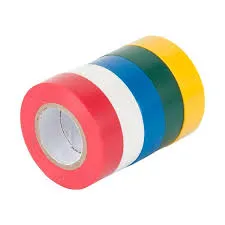Understanding High-Temperature Insulation Tape A Comprehensive Guide
High-temperature insulation tape is a specialized adhesive tape designed to withstand extreme temperatures and provide thermal insulation in various applications. This tape is highly favored in industries where heat management and protection are critical, including aerospace, automotive, and electrical sectors. It is essential to understand the properties, applications, and benefits of high-temperature insulation tape to make informed choices for your specific needs.
What is High-Temperature Insulation Tape?
High-temperature insulation tape is typically made from materials such as fiberglass, silicone, or polyester, which can endure elevated temperatures without losing their structural integrity. Unlike regular adhesive tapes, which may degrade or lose adhesion in high-heat environments, high-temperature tapes are engineered to maintain their adhesive properties and offer reliable insulation even at temperatures exceeding 500°F (260°C).
Key Properties
1. Temperature Resistance One of the most critical attributes of high-temperature insulation tape is its ability to withstand extreme heat. Depending on the specific product, some tapes can handle temperatures up to 1200°F (650°C) or more.
2. Chemical Resistance Many high-temperature tapes are designed to resist chemical exposure, making them suitable for use in harsh environments where other materials might fail.
3. Electrical Insulation High-temperature insulation tape serves not only as a thermal barrier but also provides excellent electrical insulation, protecting sensitive components from heat-related damage.
4. Durability These tapes are often tear-resistant and can withstand mechanical stresses, which enhances their longevity in demanding applications.
Applications
high temp insulation tape

High-temperature insulation tape finds uses in various areas, such as
- Automotive It is used for insulation on wires, hoses, and high-temperature components within engines, preventing heat-related damage and enhancing performance.
- Aerospace In the aerospace industry, the tape is essential for thermal protection in various components, ensuring safety and efficiency in aircraft systems.
- Electrical and Electronics Commonly utilized in electrical insulation for wires and parts exposed to heat, high-temperature tape ensures that electrical connections remain protected under thermal stress.
- HVAC In heating, ventilation, and air conditioning systems, high-temperature insulation tape is used to seal ductwork, preventing energy loss and enhancing efficiency.
Benefits
The advantages of using high-temperature insulation tape are numerous. Not only does it provide thermal and electrical insulation, but it also improves the safety and efficiency of systems by preventing overheating. Additionally, its resistance to chemicals and moisture further enhances its applicability across various environments.
Conclusion
In conclusion, high-temperature insulation tape is a vital component in a wide range of applications requiring reliable thermal management and electrical insulation. Its exceptional properties make it a preferred choice for industries where performance and safety are paramount. Whether you are in the automotive, aerospace, or electrical industry, investing in high-temperature insulation tape can lead to enhanced durability and efficiency in your projects.
-
XIANGFAN Rubber Tape-Ultimate Solutions for All Your Insulation NeedsNewsJun.24,2025
-
XIANGFAN Rubber Tape-Protection for Industrial and Residential ApplicationsNewsJun.24,2025
-
XIANGFAN Rubber Tape: Superior Safety and Sealing for Demanding EnvironmentsNewsJun.24,2025
-
XIANGFAN Rubber Tape: Reliable Solutions for Every Electrical ChallengeNewsJun.24,2025
-
XIANGFAN Electrical & Industrial Tape: Powering Reliability Across IndustriesNewsJun.24,2025
-
XIANGFAN Electrical & Industrial Tape: Excellence in Every ApplicationNewsJun.24,2025
